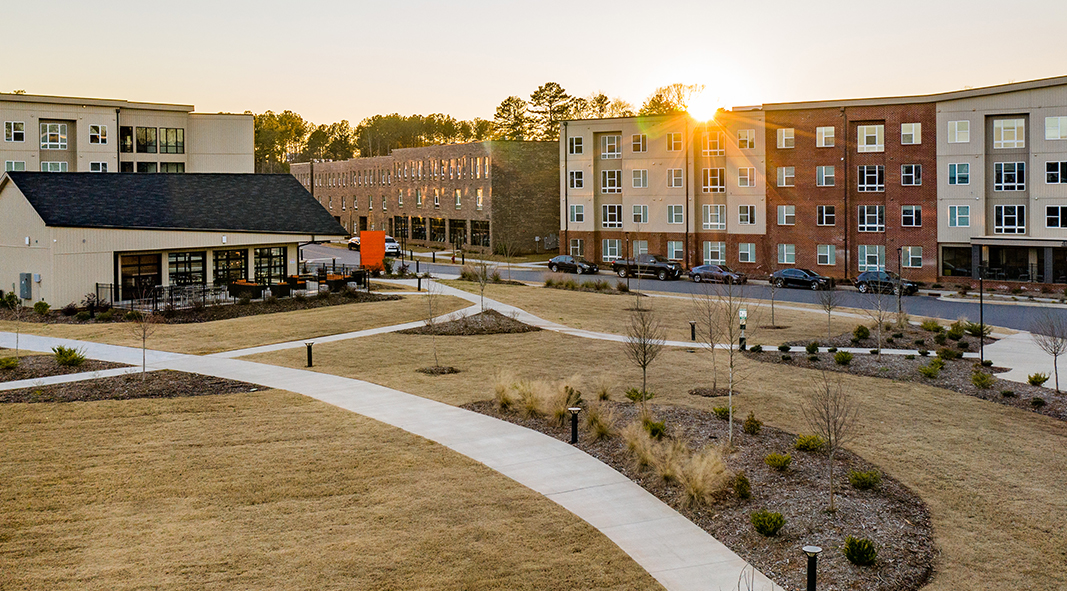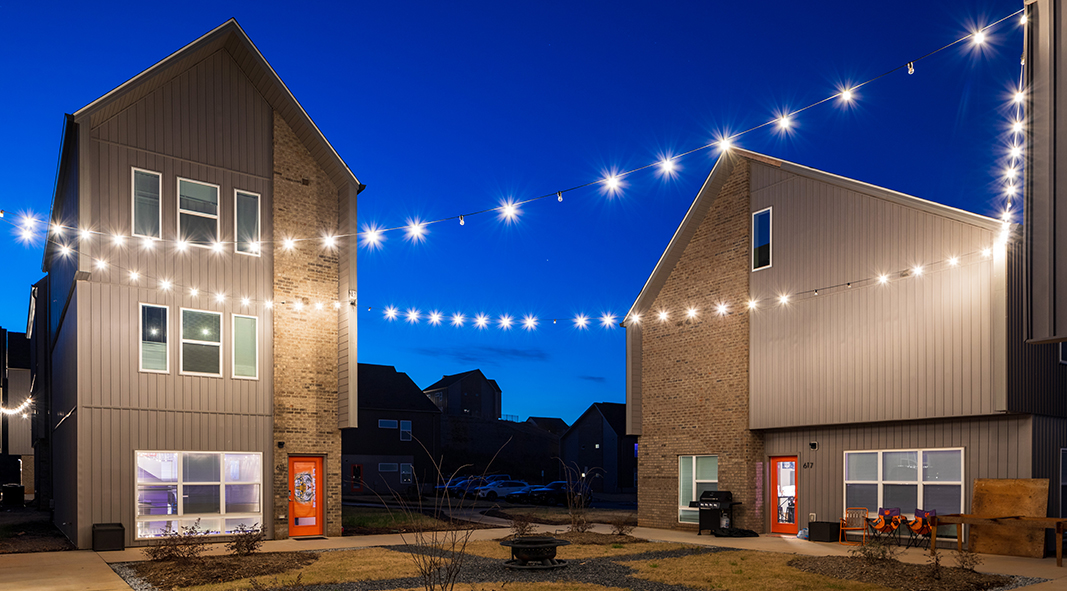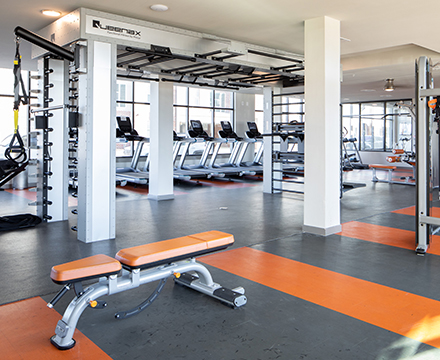Clemson Off Campus Housing
Nestled in an outstanding, lake-side location mere minutes from Clemson University, EPOCH Clemson Student Living is a vibrant student housing community offering contemporary apartments and a plethora of exciting amenities that elevate the college experience.

Designed With The Student Lifestyle In Mind
EPOCH Clemson Student Living is more than just a place to live, it’s a dynamic haven that caters to the unique needs of college students, marking a bold and spirited chapter in the epic saga of your college adventure. Our Clemson University off campus housing community boasts a wide array of on-site amenities that provide a thrilling playground for residents with an adventurous spirit, tranquil spaces for scholars to study and grow, and social settings for memorable hangouts. In each of our Clemson apartments, you’ll discover modern features and luxury conveniences that take the student housing experience to the next level.
Community Amenities
- Lake Access
- Swimming & Fishing Dock
- Fully-Equipped Fitness Center
- Resort-Style Pool
- Basketball Court
- Private & Group Study Rooms
- Dog Park
- Live Event Venue
Apartment Features
- Designer Furniture
- Walk-In Closets
- In-Unit Washer & Dryer
- Granite Countertops
- Energy-Efficient Appliances
- Private Bedrooms & Bathrooms
- High-Speed Internet
Local Interests
- Hartwell Village
- Memorial Stadium
- Fike Recreation Center
- Downtown Clemson
- Mellow Mushroom Clemson
- Larry W. Abernathy Waterfront Park
- Calhoun Corners Restaurant
- Mountain View Park
- Our Location
- Explore
- Places To Eat
Minutes From All The Action

Conveniently Close To Clemson University
Our Clemson student apartments place residents just minutes away from Clemson University and many of the city’s finest restaurants, shops, and entertainment destinations. For added convenience, we offer private shuttles to campus and downtown.
“I love being at EPOCH during my college career. The amenities are supreme and there is always something going on somewhere. The pool is great and with study rooms and a 24-hour coffee shop, staying on top of school is very easy to do.”

Resident
Satisfaction &
Exquisite Living
Are Our Highest
Priorities
Spacious Floor Plans
EPOCH Clemson Student Living provides a myriad of spacious and stylish apartment floor plans and layouts for residents to choose from. We offer cottages, brownstones, luxury flats, and townhomes in Clemson, SC!


Contemporary Convenience
At EPOCH Clemson Student Living, we strive to provide residents with the utmost comfort and convenience. Here, residents have always access to our professional management and maintenance staff.

Student-Focused Living
EPOCH is a student-focused residential community! Our Clemson off campus apartments provide student residents with everything they need to thrive in their academic, social, and personal lives.

Pet-Friendly Community
EPOCH Clemson Student Living is a pet-friendly community. With a dog park, walking trails, and plenty of adventures to be had, EPOCH is a community where pets can live as luxuriously as our residents!













